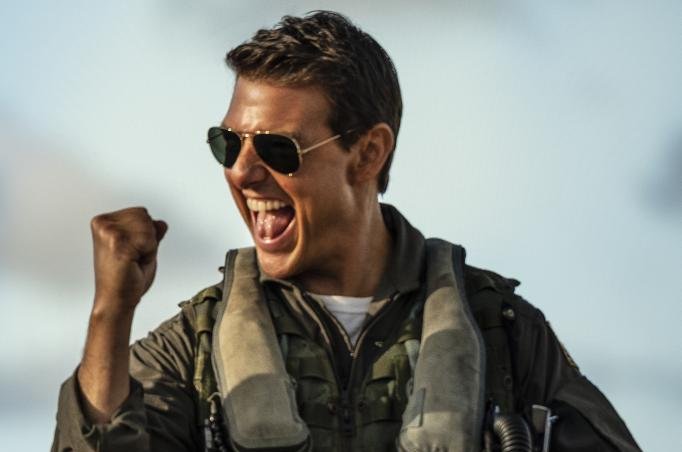1 of 5 | Tom Cruise returns as Maverick. Photo courtesy of Paramount Pictures
LOS ANGELES, May 12 (UPI) -- Top Gun: Maverick, in theaters May 27, is the best legacy sequel to a single movie. One still can debate Creed, Cobra Kai or The Force Awakens, but each had entire franchises upon which to draw. Even Ghostbusters: Afterlife had two.
Maverick (Tom Cruise) still is a Navy aviation captain, having avoided promotions like Captain Kirk before him. When a complicated mission arises, Top Gun calls Maverick back to train a team of elite pilots.
The film does a good job establishing the mission -- to destroy a uranium plant before it's completed as a sort of real-world Death Star run. Maverick spends the movie training pilots in the specific skills they'll need, so the stakes remain clear how dangerous and precise this mission will be.
The flight scenes capture exciting new maneuvers the U.S. F-18s are capable of performing. Director Joseph Kosinski captures the flight sequences in glorious IMAX, so even closeups of the pilots in the cockpit have vast backgrounds behind them.
The finale becomes even more exciting than anticipated when even more unforeseen opposition shows up to complicate an already Herculean mission. It is a relentless and breathless climax that builds escalating action like Cruise's best Mission: Impossible films.
Since Maverick is the instructor, he still gets to go up in the air in the training scenes, but the film also is about forcing him to pass the torch, whether he is ready to or not.
The drama on the ground addresses issues remaining from the original ones and new ones facing the military. Rooster (Miles Teller) is the son of Goose (Anthony Edwards), Maverick's wingman who perished in the original.
Rooster understandably resents Maverick for those events, and for additional conflict we learn occurred in-between films. The spirit of Goose is all over Top Gun: Maverick, both via Rooster's character and Maverick still coping with the loss.
A sense of mortality permeates Top Gun: Maverick in addition to the Goose issue. Maverick faces nearing the end of his flying career, and the military is willing to send these pilots on a suicide mission.
Commanding officer Cyclone (Jon Hamm) stops short of saying they're expendable, but he says all pilots know the risk. Maverick doesn't accept that, so he wants to teach the pilots to complete the mission and return alive, whether or not that flies in the face of authority.
Kosinski shows reverence for original director Tony Scott's saturated magic hour aesthetic. When the Harold Faltermeyer music cue punctuates dramatic moments, it might be laughable if it weren't so magnificent. Kosinski also lovingly builds up Maverick's suiting up iconography for his motorcycle rides.
The production confirmed Val Kilmer's casting while still filming, and Iceman's role also pays off the Top Gun legacy. Iceman has risen through the ranks, and he's the one who tasked Maverick with training these pilots.
The film solves Kilmer's limited vocal ability by having Iceman text with Maverick. Texting has become a real creative salve for productions, like And Just Like That... using texts to represent Samantha without Kim Cattrall.
The one live-action scene in which Kilmer appears poignantly addresses his real life ailment, while giving him a dignified moment with Maverick.
They still should've invited Kelly McGillis back for a cameo. She wouldn't be expected to be Maverick's love interest again, but her character still could have been a veteran instructor at Top Gun.
Speaking of women, there's only one female pilot in the class, Phoenix (Monica Barbaro). She gets some good moments, but can't shine too much while the focus of the film is Maverick and Rooster.
One sequel can't do everything. Perhaps Top Gun: Rooster can be about his daughter. At least Maverick's love scene with bartender Penny (Jennifer Connelly) shows a nice contrast between the way two adults connect now versus. the way a hotshot cadet seduced his instructor.
Top Gun: Maverick makes the most out of the 1986 original to find themes for relevant drama today. The spectacle also benefits from advancements in aircraft and filmmaking.
Fred Topel, who attended film school at Ithaca College, is a UPI entertainment writer based in Los Angeles. He has been a professional film critic since 1999, a Rotten Tomatoes critic since 2001 and a member of the Television Critics Association since 2012. Read more of his work in Entertainment.















